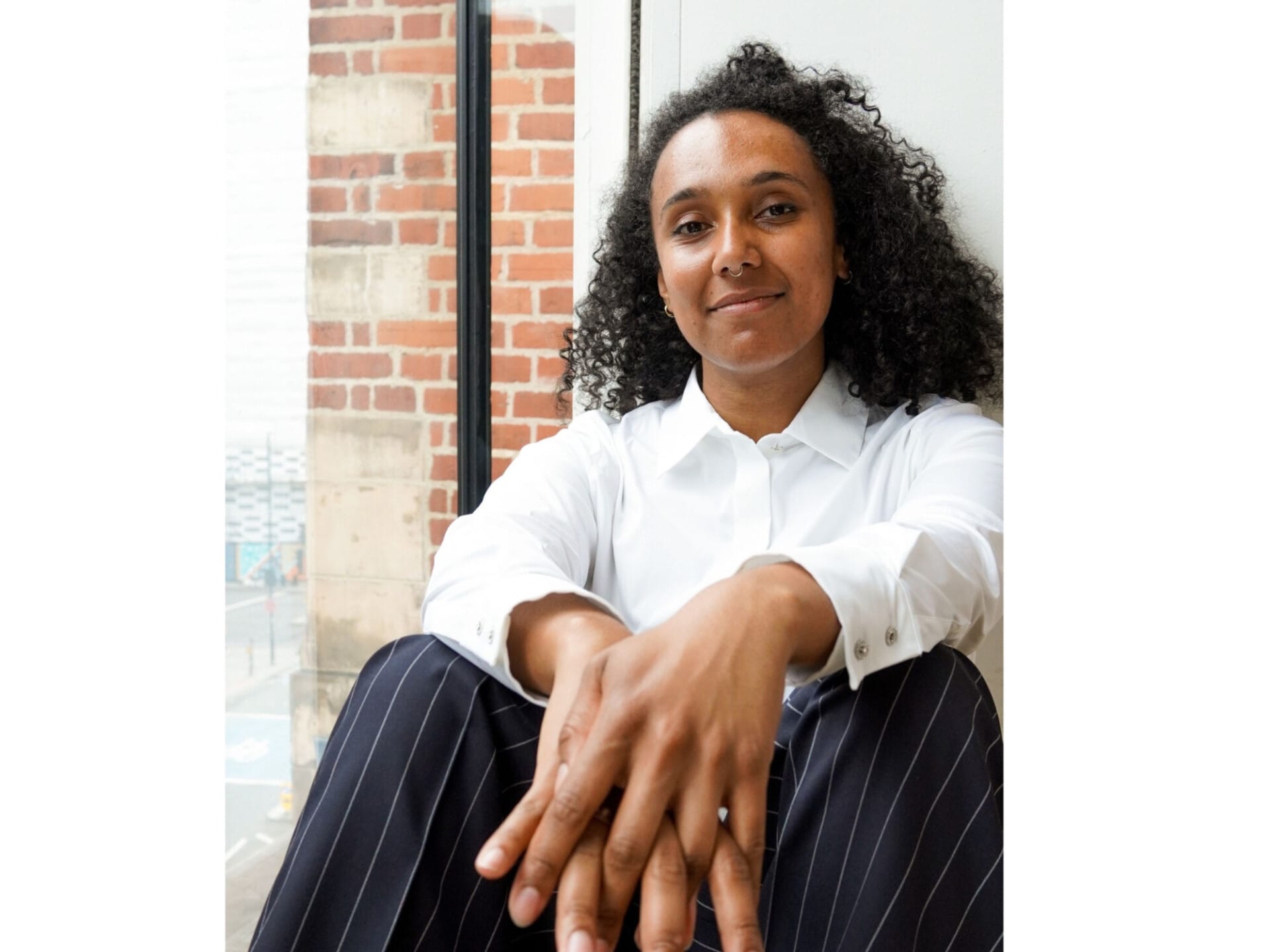28 March 2023 – Max Mara, Whitechapel Gallery and Collezione Maramotti are delighted to announce Dominique White (b. 1993) as the winner of the Max Mara Art Prize for Women.
The prize, set up to support and nurture women-identifying artists at a crucial stage in their career, uniquely awards White a six-month bespoke residency in Italy, tailored to fit, inform and develop her winning proposal. This will culminate in a major solo exhibition to be held in 2024, launching at Whitechapel Gallery and touring to Collezione Maramotti, Reggio Emilia, Italy.
The winner was announced during a special ceremony held at Whitechapel Gallery on 28 March 2023, co-hosted by Gilane Tawadros, Director of the Whitechapel Gallery, and Luigi Maramotti, CEO of Max Mara Fashion Group Srl.
White was selected from a shortlist including Rebecca Bellantoni, Bhajan Hunjan, Onyeka Igwe and Zinzi Minott, by a panel of art-world experts comprising gallerist Rózsa Farkas, artist Claudette Johnson, writer Derica Shields and collector Maria Sukkar. The panel was chaired by the Prize’s guest curator, Bina von Stauffenberg, in collaboration with Gilane Tawadros.
Dominique White lives and works between Marseille and Essex. A sculptor and installation artist, she is interested in creating new worlds for ‘Blackness’ and fascinated by the metaphoric potency and regenerative power of the sea. She produces ghostly, seemingly fragile, yet highly physical works, often employing discarded and potent nautical relics such as old sails, masts, burned mahogany, chains and rope, and materials such as Kaolin clay and untreated iron. Her practice weaves together theories of Black Subjectivity, Afro-pessimism and Hydrarchy from below (dismantling or overthrowing the ability for individuals to gain power over land through water) with nautical myths particularly relevant to the Black Diaspora. She redefines the term Shipwreck(ed) as a reflexive verb and state of being to embody the inherent abolition within her work. White’s sculptures, or ‘beacons’, recall sea-bound, imagined worlds which prophesise the emergence of the Stateless: “a [Black] future that hasn’t yet happened, but must.”
White’s winning proposal for the 9th edition of the Max Mara Art Prize for Women is for a new body of work entitled Deadweight, taking as its starting point the measure of ‘deadweight tonnage’, an official term used in the maritime industry that calculates how many units of weight a ship can take before it sinks. The project continues her artistic and political concerns, while engaging with additional narratives and cultural layers which will be researched and further developed during her 6-month residency in Italy.
Through dedicated research, mentoring, study, field trips and studio work, White will explore and interrogate the meaning and exploitation of ‘deadweight tonnage’, tracing its relevance to the historical slave trade and its contemporary forms in the Mediterranean. She will work with historians and journalists as well as visit key sites in southern Italy as part of her inquiry. The residency programme will also include visiting nautical museums, archives and collections; foraging ship (grave) yards for discarded materials; and working with traditional and contemporary metal workers to deepen the artist’s understanding of the production processes, skills and techniques required to develop the work. As part of Deadweight’s creative development, White intends to build and then submerge elements of the final work in the Tyrrhenian Sea off the west coast of Italy, which will then form the basis of the solo exhibition in 2024.
Further details on the residency will be unveiled in the following months.
Dominique White said:
“It is truly an honour to be awarded this year’s Max Mara Art Prize for Women and I’m thrilled to have been the recipient of an award that not only enables the development of seemingly unattainable skills and ambitious areas of research, but also (quite literally) supports the emergence of a new body of works. I’m so grateful to have shared this space of distinction with Rebecca Bellantoni, Bhajan Hunjan, Onyeka Igwe and Zinzi Minott and I would like to express my deepest gratitude again to the jury, Whitechapel Gallery, Max Mara and Collezione Maramotti for this once in a lifetime opportunity.”
Gilane Tawadros said:
“On behalf of the jury and Whitechapel Gallery, I want to congratulate Dominique White on being awarded this year’s Max Mara Art Prize for Women. The youngest of the shortlist, Dominique’s winning proposal showed a maturity, rigour and consistency of creative approach that is entirely in keeping with the aims of the Prize, which is ultimately to enable women-identifying artists to develop and create projects that speak of and to the world around them.
The themes she explores in her work feel especially timely and relevant today, and we are delighted to be able to support her over the course of her residency and through a solo exhibition. At a time when the need for refuge and safe space is so acute and the passage of individuals and communities by sea poses such risks to lives and exposes so much injustice, the interrogation and exploration of both the historical and contemporary systems that control movement and identity seems especially urgent.”
Luigi Maramotti said:
“I am delighted that the Max Mara Art Prize for Women continues to be such a special project for all partners and stakeholders, and that it is enthusiastically supported by Gilane Tawadros, the new director of Whitechapel Gallery. This award offers the winners a rather unique opportunity to focus on their artistic research, to develop an idea and create an ambitious project in relation to their long residency in Italy. I am confident that Dominique White will be able to make the most of this opportunity.”
The Max Mara Art Prize, the only visual art prize of its kind in the UK, has been awarded biennially since 2005, and is open to UK-based, emerging, women artists who have not previously had a solo exhibition. The partners of the prize are Max Mara, Whitechapel Gallery and Collezione Maramotti who work in collaboration on each phase of the prize.
